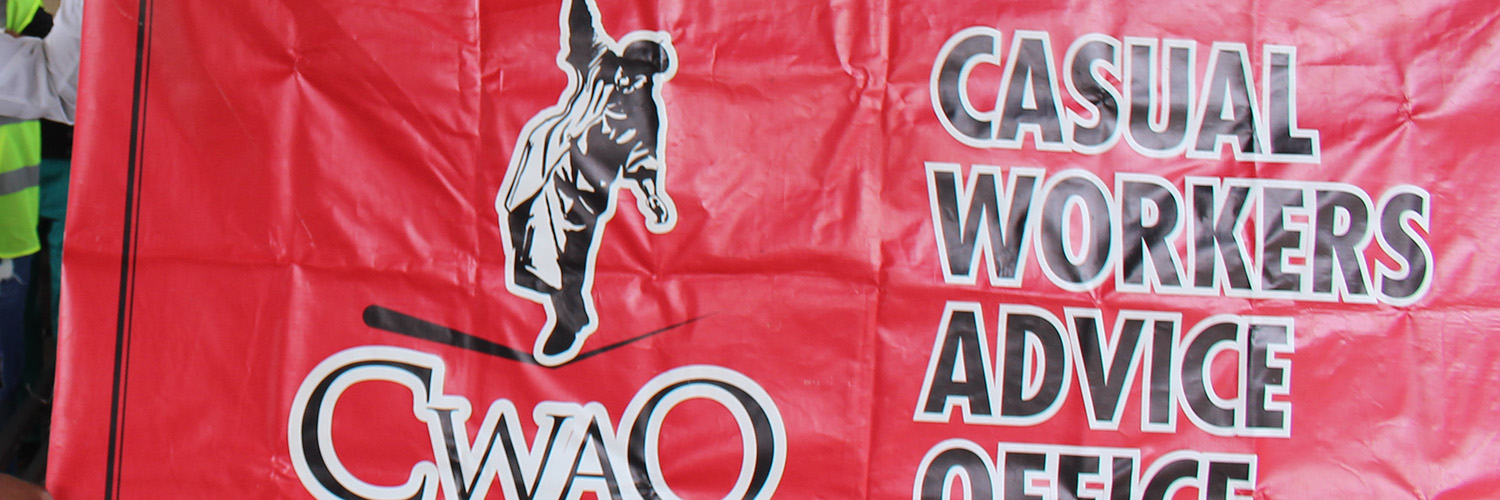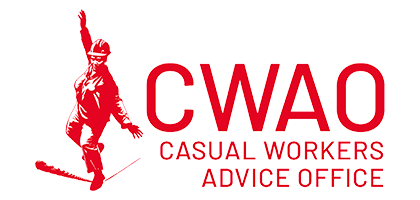
CWAO IN THE NEWS
The national minimum wage entrenches Apartheid's cheap Black labour
29/02/2024
Publication: CWAO and SWF
Author: CWAO Press Writer

The 1 March increase in the national minimum wage from R25.42 to R27.45 has been hailed in many quarters, most particularly by Cosatu. This alone should make us suspicious, given the federation's consistently anti-worker politics.
Any increase in workers’ wages is to be welcomed. But it is necessary to remind ourselves of where the national minimum wage comes from and what it’s real effect has been on workers and the working class.
The National Minimum Wage Act came into effect in January 2019 with only an hourly minimum wage of R20, despite the earlier talk of it also including a R3500 monthly minimum wage. The argument in support of the very low hourly rate was that it would help lift over three million workers out of poverty. It would also serve as a basis for collective bargaining – in other words, workers could mobilise and bargain for an even higher minimum wage.
The introduction of the Minimum Wage Act had little to do with lifting low-wage workers out of poverty. It was a distraction from the real deal being struck elsewhere. A 2018 amendment to the Labour Relations Act (LRA) introduced a compulsory secret ballot before workers could go on strike. The trade unions happily agreed to this strike limitation in exchange for a separate LRA amendment that allows bargaining council agreements to be extended to non-parties even if the trade unions in the council no longer have a majority membership in the sector. Trade union membership has been falling for some time and the bargaining council system has become critical to their survival, especially the extension of agreements to non-parties.
Moreover, the labour movement has become an important weapon in the hands of the ruling class. The unions sells out workers’ right to strike, they sell out by denying the majority of the country’s workers from representation at the CCMA, sell out when the CCMA closes its walk-in dispute resolution function, sell out by excluding millions of workers from TERS, and sell out when they urge workers to vote for a corrupt ANC government that is no more than a puppet of the capitalist class. In all these examples it is the capitalist class that benefits.
To play this sellout role successfully the ruling class must from time to time give these unions some crumbs, to keep up the pretense that they are fighting for the working class. That is what the introduction of the National Minimum Wage Act was.
It explains the pathetically low figure of R20 per hour, with even lower minimums for farm, domestic and EPWP workers. On top of that, bosses could apply for exemption from even these low wages. The absence of a monthly minimum wage was no surprise. More and more bosses are ‘scheduling’ workers on a daily basis. Workers are called to work only when the bosses need them and are paid accordingly. A monthly minimum wage would interfere with these efforts to further cheapen Black labour and increase profits.
More significantly, despite talking about the R20 lifting workers out of poverty and being a basis for collective bargaining, Cosatu has failed to mobilise affected workers so that they actually get the minimum wage. Nor has it attempted to use the national minimum wage as a basis for organising hitherto unorganised workers.
This failure has occurred alongside and worsened an equally predictable failure by the Department of Employment & Labour (DEL) to enforce the national minimum wage. The CWAO routinely comes across large workplaces in Johannesburg where employers are not paying the national minimum wage. This experience is shared by other worker-supporting organisations.
The DEL is quite simply not enforcing the national minimum wage. This explains why the National Minimum Wage Commission in its 2023 report makes no mention of DEL figures on employer compliance, the number of compliance orders issued, the number of cases referred to the CCMA, the number of employer exemption applications received or of the number of exemptions granted. The Commission’s report is not short on figures, tables and graphs. In fact, it boasts at least seven pages of these. All except the figures that indicate whether workers are, in fact, receiving the national minimum wage. The omission is no accident. The Commission deliberately hides the DEL from scrutiny and bluffs its way out with a pretense of ‘science’ and rigour.
The combined effect of unions not mobilising affected workers and the DEL not enforcing the national minimum wage means that the foundation of South African capitalism, of low Black wages, continues unchallenged. The legislated minimum wage does not benefit the working class. Quite the contrary: the CWAO equally routinely comes across workplaces where employers have dragged down the wages of higher-earning workers to the lower national minimum wage.
The national minimum wage is not helping to lift affected workers out of poverty because few workers are receiving it. Worse, bosses are using the low minimum as an incentive to lower the wages of workers who have been earning well above it. The national minimum wage was never intended to challenge the system of cheap Black labour. It was meant to entrench it.
This is further fueled by the state’s pro-capitalist austerity politics and use of EPWP workers as replacement labour for permanent, public sector workers. Even with the latest increase EPWP workers will receive R15.16 per hour, an even more extreme form of cheap Black labour. It is no wonder these workers are in the forefront of struggle for permanent jobs and better wages.
The working class does not need to know the food poverty line, the lower-bound poverty line or the upper-bound poverty line to know that it is starving. Nor does it need to know what CPI or a median wage is. It knows it needs a living wage, which it determines through weighing its immediate needs against the current strength of its organisations.
For more information contact CWAO Organiser Sydney Moshoaliba on 072 550 4550.
